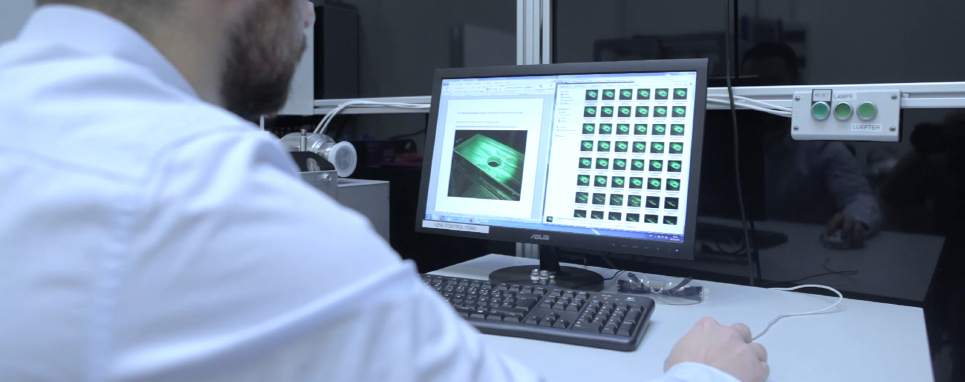
New research shows hygienic design improves cleanability
Leading industrial drainage company ACO and independent research institute Fraunhofer IVV Dresden has announced the findings of a new research study commissioned to evaluate the effect the use of hygienic design has on the spray cleanability of drainage systems.
Picture gallery
Commissioned by ACO, the research project underlines ACO‘s ongoing commitment to research-led product development and delivering optimum hygienic performance. The study found that during cleanability tests hygienically engineered and designed drainage channels could be effectively cleaned until optically clean in less than 10 minutes. Whereas non-hygienic channel still has 2 percent residual soiling after an extended rinsing time of up to three hours.
The research compared the performance of the ACO hygienic box channel – selected as a product that’s representative of ACO‘s hygienic drainage range - with another channel whose design is typical of that currently used in food manufacturing and commercial kitchen environments.
Further information on the research study and its findings are available in research part of the web.
Commenting on the research, Jan Cisek - Managing Director of ACO Industries k.s., said: “ACO is committed to driving improvements in hygiene across the food manufacturing and commercial kitchen sectors. It is important to us that our product designs and the advice we give to our clients is based on the findings of robust academic research that not only enables us to improve the drainage systems we provide but also gives our clients the additional knowledge they need to optimise food safety.
The ability to completely clean drainage systems and to do so in a way that is practical, efficient and affordable is a key issue which effects hygiene in a food processing environment. The research findings of the Fraunhofer Institute IVV Dresden clearly show that the use of ACO’s hygienically designed channel dramatically improves cleanability. Hence, reducing the risk of bacterial contamination and ultimately helping food manufacturing companies and foodservice outlets improve the safety of their facilities and their products.”
The research study is the first of many that have been commissioned by ACO as part of its HygieneFirst philosophy. The findings of additional research projects are expected to be announced over the next six months.
ACO’s HygieneFirst philosophy embodies its commitment to raising standards across every part of the hygienic drainage process from design and installation through to cleaning and ongoing maintenance.
As a leading advocate of hygienic design, ACO also has a strong collaborative relationship with the European Hygienic Engineering and Design Group (EHEDG). It was the first drainage manufacturer to become a member of EHEDG and in conjunction with other food industry experts; ACO played a key role in the development of EHEDG guidance document 44.